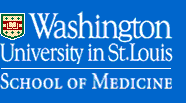


 |
 |
 |
|
|
Mentors of Tomorrow One-of-a-kind program steers budding physicians toward a lifetime of discovery |
|||||||

| TIM W. SCHLOSS, MD, IS A CONVERT. He was a first-year intern in the Department of Medicine, focused intently on a career as a clinical cardiologist, when he encountered the Mentors in Medicine program. Now he’s a senior resident with a successfully completed research project and a follow-up study in design. More broadly, he’s become a believer in academic medicine and the value of clinical research. Schloss is now certain that his cardiology career will include a research component. Schloss’ prior lack of participation in research is not unusual. The Association of American Medical Colleges reports that only about 11 percent of graduating medical students say they will be significantly involved in research during their medical careers. “My exposure to research in medical school was limited,” Schloss says, “and finding the time in a resident’s schedule to undertake a research project has been a challenge.” But participating in Mentors in Medicine and producing meaningful results, along with a first place poster award from the Society of Geriatric Cardiology and impending publication of his paper in a national cardiology journal, is “exciting,” he says.
Michael W. Rich, MD, introduced senior resident Tim W. Schloss, MD, to the academic side of clinical cardiology. Working with his research mentor, noted geriatric cardiologist Michael W. Rich, MD, Schloss designed a project which showed, counter-intuitively, that using aggressive approaches to treating heart attacks — cardiac catheterization, stent procedures or even bypass surgery — in the very elderly is twice as effective in the long term as more conservative medical therapy. It’s information that will imbue his practice of cardiology and a mindset that will guide his pursuit of medical knowledge. THE FOCUS OF MENTORS IN MEDICINE is not so much on specific results as on broad philosophy. The idea is to provide eye-opening research opportunities to bright, young physicians who are “hungry to answer clinically relevant questions but may not know exactly how to proceed,” says Daniel M. Goodenberger, MD, professor of medicine and chief of the division of medical education in the Department of Medicine. Begun by Goodenberger and his colleagues three years ago, Mentors in Medicine aims to use mentorship to demystify the processes and challenges of research, both clinical and basic. The program has evolved to provide everything residents need to pursue a research question, from help with experimental design through laboratory and statistical techniques to securing funding. Today, Brian Dieckgraefe, MD, PhD, whom Goodenberger calls the “energy” of Mentors in Medicine, directs the program. Dieckgraefe, assistant professor of medicine, says, “The reality of medicine today is that those interested in academic careers often get little formal help. Many people may abandon their goals of doing research because of a lack of information and no familiarity with what’s required. This program formalizes a mentorship. And successful academic investigators all share one quality: They all sought career mentors to guide them.” An accomplished researcher himself, Dieckgraefe also is pleased that the program may be forestalling endangered species status for academic physicians, a career path he says is under attack from uncertainties in funding, salary differentials and the debt that stalks so many medical school graduates. “ Mentors in Medicine provides resources, a framework and illustrations of how it is possible to be successful,” Dieckgraefe says. The program’s assistant director, Thomas M. De Fer, MD, assistant professor of medicine, adds that Washington University is the perfect place for such a program: “Residents in more common hospital settings have no exposure to research. Here, this is the way we think; we see the ongoing need for academicians.” The one-of-a-kind program — nothing like it exists anywhere else in the country — has several parts. Every intern who begins training in the Department of Medicine is assigned a general mentor in a nod to the fire-tested practice of senior guiding junior. Beyond that, trainees can choose to seek out a research mentor, most often from among department faculty, involved in the pursuit of questions of interest to the trainee. With that mentor’s help and the support of Dieckgraefe, De Fer and others (notably Sharon Morgan, the department’s assistant director of development and corporate education), the trainee, who by this time is usually in the first year of residency, develops a design for a research project and completes an application, learning grant-writing skills along the way. Rich, associate professor of medicine, who currently mentors four residents and fellows, says he volunteers both because he enjoys working with young investigators and finds their research projects interesting. “These are not huge, randomized trials, obviously, but the studies do make contributions to the field, and it’s great for them to have an opportunity to work with a career investigator.” He points to Schloss’ project as one that has been well-received and generated interest. It helps that the trainees come to their chosen labs with funding to cover the costs of their projects, Rich says. Otherwise, he and other mentors would be limited by what their own labs could bear financially. But Mentors in Medicine is also a grant-making organization. Modeled after government granting agencies to the largest extent possible, the program seats a review board that considers research proposals and takes one of three actions: 1) funds them as is, 2) sends them back to their authors for revision, or 3) disapproves them with comments and a small stipend to encourage their further refinement and later resubmission. Most grants range from $3,000 to $7,000, enough to cover the cost of a laptop computer for data acquisition, statistical analysis and lab materials, De Fer says. Some grants are for more, and Schloss was pleased to learn recently that the follow-up to his initial study had been funded this year for significantly more than the average. The necessary funds come as grants from pharmaceutical companies interested in advancing the next generation of research physicians, contributions that Dieckgraefe and De Fer characterize as “unselfish and generous.” They also point out that the funding is controlled by the companies’ research offices and not their marketing departments, with no strings attached and no corporate input whatsoever into what research ultimately is funded and pursued. All funding is pooled and then distributed so that no company is tied in any way to a particular research project. A smaller part of the program, but one that endows huge benefit, is the inclusion of noon lectures and casual dinners with eminent researchers invited to campus. Dieckgraefe says that the chance to interact casually with renowned investigators, asking questions such as “What mistakes did you make early in your career?” demystifies the research life and humanizes highly successful people. “Examples of how a career can be structured are particularly helpful,” he says. Goodenberger points out that such networking opportunities can be invaluable for junior researchers, as when they are introduced by their mentors as scientists of promise. In another bow to the reality of researchers’ lives, every participant is expected to present the results of his or her study at an annual symposium; if the project is not complete, then progress must be detailed. Presentation skills are fostered, and pharmaceutical house representatives are invited to learn how the funds they contributed have been spent. Mentors in Medicine is growing. The Department of Medicine has approximately 160 graduate physicians in training at any one time, with about 50 senior residents graduating each year. This program now touches nearly half of those graduates. In the first year, 11 grant proposals were made, and all were funded. Last year, the number rose to 18. Most recently, 28 proposals were entertained, and 20 were accepted for funding, so competition is now a factor. Dieckgraefe believes that the program is approaching its optimum size, and he hopes to achieve a steady state. Goodenberger underscores the purpose: “Washington University is a leader at turning out people who excel in academic medicine. We want to continue that tradition in all available venues.” Tim Schloss and his commitment to make research a permanent
part of his career illustrate how it is being done.
|
||||||